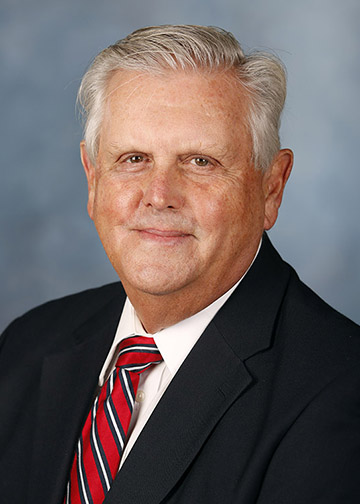
Education Commissioner Terry Holliday
The 2014-15 school year is upon us, and it’s going to be an exciting and busy school year for Kentucky public school students, educators and parents.
Many new and continuing initiatives will require the time and attention of the Kentucky Department of Education (KDE), school districts, schools and educators. All of these efforts support our ultimate goal in Kentucky: college and career readiness for ALL students.
Here is a quick look at some of the major initiatives and undertakings this coming school year.
Professional Growth and Effectiveness System
We have elevated the expectations of our students with the Kentucky Core Academic Standards and corresponding assessments, and we have high expectations of our teachers, principals and superintendents as well. The Professional Growth and Effectiveness System (PGES) is designed to provide all Kentucky educators with fair and meaningful feedback grounded in evidence and based on a set of consistent professional standards. The feedback is intended to empower the individual educator to improve his or her practice through personalized professional growth planning and professional learning opportunities. The goal is that every child will be taught by an effective teacher, every school led by an effective principal and every district led by an effective superintendent.
The teacher, leader and superintendent growth and effectiveness blueprint has taken Kentucky educators more than four years of careful planning, negotiation, testing and tweaking. Full implementation of the Professional Growth and Effectiveness System rolls out for teachers, leaders and superintendents during the 2014-15 school year, however, unless a district has otherwise chose to do so, it will not be used for personnel decisions until the 2015-16 school year, when it will also become a measure of school and district accountability.
The system will require significant changes and intensive training, but the benefits are many. PGES should create an ongoing meaningful dialogue between superintendents and school board members about key districts operations and performance. Principals will be focused on overall school and instructional improvement; and teachers will be more reflective of their practice and looking for models and exemplars of powerful instruction that help more students succeed.
Next-Generation Science Standards
The Kentucky General Assembly, as part of Senate Bill 1 (2009), mandated new academic standards in all subjects. The Kentucky Board of Education adopted new science standards incorporating them in the Kentucky Core Academic Standards last summer, with schools implementing them this school year. The Next-Generation Science Standards (NGSS), which were developed by a coalition of experts in Kentucky and 25 other states over the past two years, are rigorous, research-based and aligned with expectations for college and careers. The new science standards integrate core ideas, key practices and concepts that apply to many areas of science and reflect the interconnected nature of science as it is practiced and experienced. They provide for a deeper understanding of content and application. (For more information about the standards, visit www.nextgenscience.org.)
Career and Technical Education
The goal of Kentucky K-12 public education is to prepare students for life after high school which means readying students for college and/or career. To that end, this year the Kentucky Department of Education (KDE) will continue its work in the area of career and technical education (CTE) to provide students with viable career pathways to follow. Research has shown that career pathways often lead to higher paying jobs that are in greater demand than those held by college graduates with a bachelor’s degree.
Ensuring that Kentucky has a world-class system of career and technical education is a priority for Governor Steve Beshear, the General Assembly and KDE. This year the Career and Technical Education Advisory Committee – which includes state and local center teachers and administrators, higher education, and business leaders – will continue its work toward that goal. KDE is funding a study to determine equitable and adequate funding, and also will support travel to other states that have strong regional centers to discover best practices. With funds allocated in the recently passed FY15-16 budget, KDE will work with five counties to develop a possible model for a regional center.
World Language Program Review
It is imperative that our high school and college graduates — who will be obtaining work in firms that are exporting products and services — understand the language, culture, business climate and geopolitical issues that are the reality in today’s global economy. To that end, high schools this year will implement the World Language Program Review, with accountability in the 2015-16 school year. Elementary and middle schools will start planning needed to implement a world language and competency program next year, for which they will be held accountable in 2016-17.
KDE will be awarding grants to assist schools and districts in developing world-class, low-cost, model global competency programs for elementary and middle schools. This work must be integrated with existing programs in our schools. It cannot be seen as an “add on” or just another program. We must integrate in language, social studies and other content areas.
Many more initiatives and efforts are underway at KDE and in Kentucky’s schools and districts, but I hope these highlights give a glimpse of the work that is taking place. None of this work would be possible without the ongoing work and innovation of educators and the support and collaboration of parents and the community.
We are doing great work in Kentucky – work that is gaining the Commonwealth national attention, and, more importantly, benefitting our students. Please join me in continuing this work in the 2014-15 school year, and ensuring that all our students are college- and career-ready.


Leave A Comment